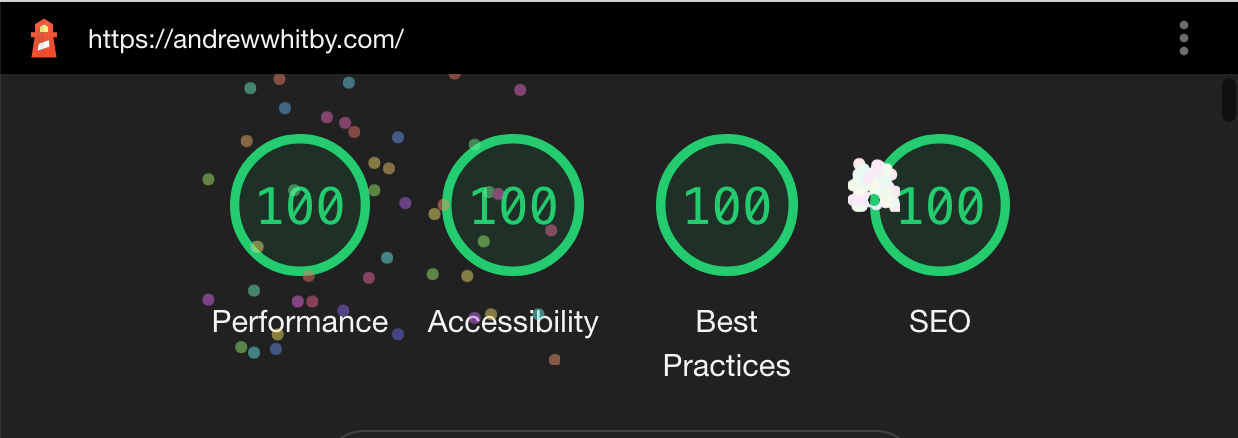Goodbye Wordpress.com, hello Jekyll!
I like to think I’m an early adopter of technology. Sometimes I am—I recently ordered a Macbook Air M1. But sometimes I’m not—it’s replacing Macbook Pro that’s seven years old. All of which is to say: Have you heard about this static-site-from-markdown thing? Seems like it could be a big deal…
Not-blogging on the early web #
I created my first “Internet homepage” on October 8, 1995. This at least, is according to a later revision, which proudly proclaimed that fact. Mercifully, neither of these was captured by the Internet Archive, and exist now only in my local filesystem. At age 18, everyone should be given the choice to selectively erase their online presence.
And again at 21, 25 and probably 30.

My first quasi-blog—that is, personal website with a dated series of entries—appeared on September 23, 1997. It wasn’t a blog, because the term didn’t exist yet. It wasn’t even a weblog, because that term was only coined, in the relevant sense, a few months later.
My non-blog had all the markers of the early web: neon colors, drop shadows, a guestbook, a LinkExchange banner, a page view counter. It was entirely hand-coded. When index.html got too long, I would laboriously cut-and-paste entries to that month’s archive page, paginating by hand. It’s no wonder I ceased updating it on December 18, 1998.

The following year those pain-points were largely eliminated with the launch of LiveJournal and Blogger. The Golden Age of Blogging was dawning.
I slept through it.
Blogging (for real this time) and the rise of Twitter #
This blog, andrewwhitby.com, started life on Wordpress.com in January 2013, when I was writing up my doctoral dissertation. I made it partly as an online CV for job hunting, and partly to reengage with the wider world after the bubble of grad school.
I reawoke to a blogosphere (a word itself archaic by then) that was allegedly in its death throes. It had been replaced by LinkedIn (2002) and Facebook (2004) and Twitter (2006) and Medium (2012).
But I’ve posted on all those platforms, and none grant you real control over your content. All may be gone by 2030, like MySpace and Geocities before them.
Moreover, modern social sites—most of all Twitter—encourage pretty shallow thought and regularly devolve into all-out flaming dumpster fires. I took a break from Twitter earlier this year.
@econandrew Since January I’ve considered taking a break from this website. I decided not to until I was beyond the throes of book promotion. That time has now come, and today I saw that last week, with the news cycle set to 11, I spent over 10 hours on here, across two devices. 🤯 (1/4)
That lasted nearly two months.1
While I intended to use that time to blog more, I didn’t—partly due to Wordpress itself. Over time it had become slower, more complicated, more focused on layout and more expensive to customize. Blogging became a chore. For a long period while I was working on my book, I stopped altogether.
Enter Dr Jekyll #
But I think best with my hands on a keyboard. Writing helps me, even if nobody is reading. And there are some specific writing projects I want to pursue that fall into the giant chasm between a tweet and a book. So I’m not giving up of blogging just yet.
My requirements are pretty simple. I want to be able to write clean prose, free of distractions. I need to be able to include visualizations, code and mathematical formulae. I’d like my pages to be good citizens of the web: fast, accessible, linkable, free of trackers and invasive scripts.
I have long admired simple websites that foreground content. My friend Benjamin Johnston has been rolling his own static sites for years. Bruno Sánchez-Andrade Nuño introduced me to Jekyll, a static site generated based around markdown, in 2015. And most recently I’ve been influenced by Tom MacWright: both his writing on the brokenness of the web, and his own blog, the minimal design of which I’ve shamelessly copied.
Static site generators are all the rage now. Some, like Gatsby, seem geared to complex applications. Others, like Hugo, Jekyll and Eleventy, seem well suited to simple sites. Despite their different vintages and languages, there’s not much to differentiate them for the kind of site I want. So Jekyll it is.
I’ve managed to transition my site almost entirely across to Jekyll. The exceptions are Wordpress followers (sorry all 35 of you) and comments. I don’t expect to enable comments on here at any point, but I may copy over the few comment threads on a few older technical how-to posts that still see traffic, since they often offered useful additional suggestions.
I considered using Github Pages to host, but limited Jekyll plugin support seemed a fatal flaw. I want this site to be easy to publish to and maintain, and I’m using a few plugins that help with that. So instead it’s on Netlify.
Everything is hosted there, including fonts and scripts, so these pages are free of any third-party tracking or analytics—apart from a handful of pages with Youtube or Twitter embeds that would be annoying to change. Going forward I’ll try not to use those.
At the moment I’m experimenting with using Netlify’s server side analytics. It’s basic and expensive for what it is, but I do want some way of knowing if a particular post has been popular, and I like the purity of no client-side analytics. Actually, I’m excited about the newly announced Cloudflare Pages and may migrate there once it’s widely available, if it’s any good.

-
I’m on a Twitter break again. This time, as well as logging out, I’ve given my password to my wife for safe-keeping. Yes, I could bypass her with an email or phone password reset, but as yet I haven’t. ↩
Add comment
Comments are moderated and will not appear immediately.